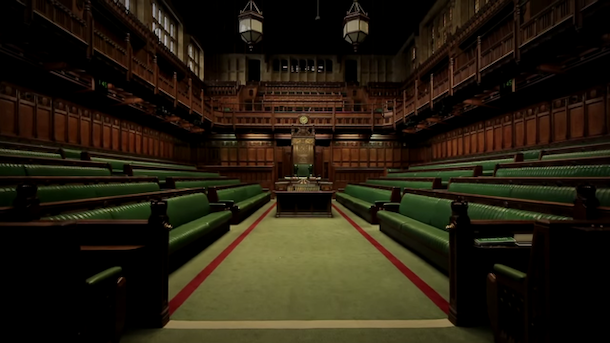Scene: the House of Commons. Speaker Bercow announces that he will stand down on October 31. Labour benches applaud wildly—the convention that members do not clap is so retro—and the Conservative benches are grimly silent, other than two or three malcontents who are headed out of the party anyway. Bercow, first elected as a Conservative, is not seen as a friend to the Government. He has in fact done everything within his considerable powers to undermine the Government, and is now departing only because the Conservatives will field a candidate against him in his Buckingham seat come the election. That would be an unendurable affront to his vanity, as is the news that Downing Street will withhold a peerage from him. This has not happened to a Speaker for 250 years. So he is to go, and he spent the next hour and a half after his announcement honoring himself, receiving handshakes and back-slapping from his devoted followers. The ScotNats were particularly effusive, even for them. The Labour Left, not so outer these days, sang a rousing chorus of the Red Flag. They even tried to restrain Bercow from being summoned by Black Rod to the Lords. All this was an image of the Mother of Parliaments today, now become the Madam of Parliaments.
The troubles all stem from that most misguided of laws, the Fixed Term Parliaments Act. Throughout history there has been a standard resource for a government in difficulties: call a general election. It has worked well for centuries, an escape valve for intolerable pressures. But now a Prime Minister can only call an election with a two-thirds majority in the Commons, which effectively means he needs the support of the Opposition. Since the Opposition fears—with good reason—that they would lose the election, they have not consented to the dissolution of Parliament. It is much more fun for members to stay in place making trouble for the Government, while retaining their pay and prospects. The Conservative manifesto for the 2017 general election did indeed promise to repeal the FTPA, but Theresa May never got round to it. She was too busy not getting round to Brexit.
This ghastly Fixed Term Parliaments Act was the work of one man, Nick Clegg. As leader of the LibDems in coalition with the Conservatives, he was in a position to force his price upon a complaisant Prime Minister, David Cameron. Since then, Clegg was dismissed by the electorate from his Parliamentary seat and now dwells in Zuckerberg California and a seven-million-pound mansion. He is Vice-President for Global Affairs and Communications at Facebook. Cameron is no more, leaving only a faintly perfumed vacancy since he offered a referendum to the public. As Anthony remarked, the evil that men do lives after them. He might have added that the good they did is oft interred in their bank vaults.
Boris remains, with the troubled duty of seeing the country past the October 31 deadline for leaving the EU. He is now beset with legal challenges from Scotland, which he will presumably beat off with the Supreme Court (who will not wish to be badgered by Scots). He will persist with his roadshow, a Midlothian Campaign in England. Westminster is empty save for a couple of diehard Labourites who deny the prorogation and demand the return of the natives. It is not Westminster’s finest hour.

Leave a Reply